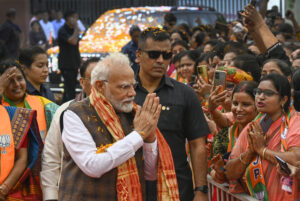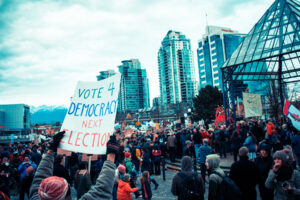

January 2024, Volume 35, Issue 1
Hindu Nationalism and the New Jim Crow
While the histories of white supremacy and Hindu supremacy are different, their political objectives are much the same. The BJP is forging a regime of exclusion and oppression as brutal as the Jim Crow South. Only India’s voters can reverse its advance.

